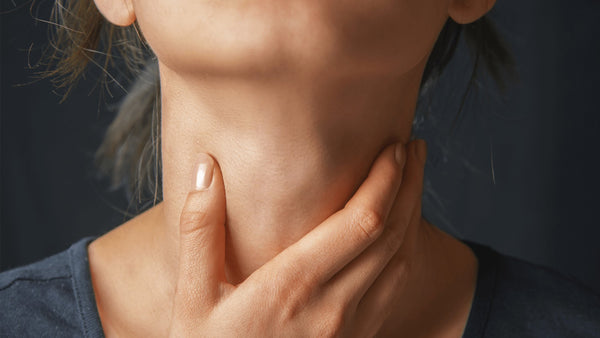Under Active Thyroid

How the Thyroid Gland Works
The thyroid is part of the endocrine system, which is made up of glands that produce, store, and release hormones into the bloodstream so the hormones can reach the body's cells. The thyroid gland uses iodine from the foods you eat to make two main hormones: Triiodothyronine (T3) and Thyroxine (T4).
It is important that T3 and T4 levels are neither too high nor too low. Two glands in the brain—the hypothalamus and the pituitary communicate to maintain T3 and T4 balance.
Why You Need a Thyroid Gland
T3 and T4 travel in your bloodstream to reach almost every cell in the body. The hormones regulate the speed with which the cells/metabolism works. For example, T3 and T4 regulate your heart rate and how fast your intestines process food. So if T3 and T4 levels are low, your heart rate may be slower than normal, and you may have constipation/weight gain. If T3 and T4 levels are high, you may have a rapid heart rate and diarrhea/weight loss.
The following are other symptoms that may indicate too little T3 and T4 in your body (hypothyroidism): Body pains (joint and muscle), brain fog, brittle nails, blood sugar irregularities, constipation, cold hands & feet, depression, dry skin and hair, fatigue, hair loss, hot flushes, low blood pressure, low libido, mood swings, PMS, poor memory and concentration, sensitivity to cold, sleep problems, weight gain.
One of the most common causes of hypothyroidism is an auto-immune disorder known as Hashimoto’s Disease. UAT helps to regulate the functioning of the immune system to prevent any further damage to the thyroid gland. UAT also removes parasites (flukes) from the thyroid and pituitary glands. Parasites inhibit the proper functioning of the entire endocrine system.
To ensure that the Thyroid gland functions we also need to make sure that the Pituitary gland works well. And in order for the pituitary gland to work well the hypothalamus needs to work well.
The thyroid and adrenal glands work hand in hand. The adrenal glands produce a hormone which affect the thyroid gland and that is why UAT helps to nourish and regulate the adrenal glands.
An under – active thyroid gland can often cause an alteration in body temperature. One of the major clinical signs of hypothyroidism is low body temperature. By checking your Basal Body Temperature (BBT) first thing in the morning can give you an indication of possible hypothyroidism.
A good way to test your body temperature is from your armpit. A normal armpit body temperature for adults is between 36.5 and 36.7 degrees Celsius. If your body temperature falls below 36.5 degrees Celsius for a few mornings in a row you should see your health care professional for further tests on your thyroid.
